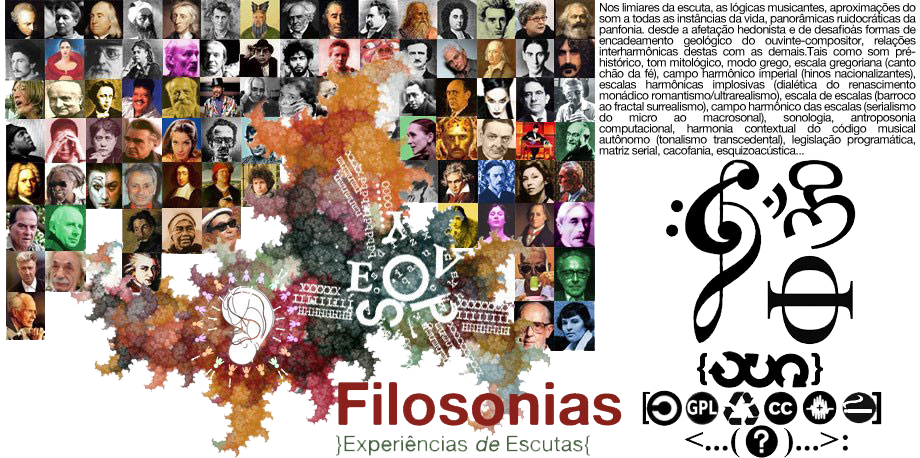Hearing Possibilities:
To increase diversity
To maximize freedom/choices
To expand the space of the possible
Sounding Efficiencies:
To increase specialization/uniqueness
To increase power density
To increase density of meaning
To engage all medias and meanings
To reach ubiquity and free-ness
To become beautiful

 Harmonic Complexity:
Harmonic Complexity:To increase complexity
To increase social co-dependency (interlistening)
To increase self-referential nature of listening
To align with nature in its stochastic recursive form
Rythmic Evolvability:
To accelerate evolvability
To play the infinite transphony
 In general the long-term bias of listening technology is to increase the diversity of sound artifacts, musical methods, acoustic techniques. More ways, more choices. Over time listening advances invent more energy efficient cultural methods, and gravitate to sounds which compress the most information and knowledge into a given space or weight. Also over time, more of more of sound on the planet will be touched by metalistening processes. Also, sounds tend toward ubiquity and cheapness. They also tend towards new levels of complexity (though many will get simpler, too). Over time sounds require more surrounding technologies in order to be discovered and to operate; some bioacoustical technologies become eusocial – a distributed existence – in which they are inert when solitary (anoise). In the long run, listenability increases the speed at which it evolves and encourages its own means of invention to change. It aims to keep the transphony of change going.
In general the long-term bias of listening technology is to increase the diversity of sound artifacts, musical methods, acoustic techniques. More ways, more choices. Over time listening advances invent more energy efficient cultural methods, and gravitate to sounds which compress the most information and knowledge into a given space or weight. Also over time, more of more of sound on the planet will be touched by metalistening processes. Also, sounds tend toward ubiquity and cheapness. They also tend towards new levels of complexity (though many will get simpler, too). Over time sounds require more surrounding technologies in order to be discovered and to operate; some bioacoustical technologies become eusocial – a distributed existence – in which they are inert when solitary (anoise). In the long run, listenability increases the speed at which it evolves and encourages its own means of invention to change. It aims to keep the transphony of change going. What this means is that when the future trajectory of a particular field of listening is in doubt, "all things being equal" you can guess several things about where it is headed:
• The varieties of whatever ways of sounding will increase. Those varieties that give humans more free choices will prevail.
• Ways of sounding (and listening) will start out general in their first version, and specialize over time. Going niche will always be going with the flow. There is almost no end to how specialized (and tiny) some niches can get.
• You can safely anticipate higher energy efficiency, more compact tools and everything getting smarter towards their means, although which will be these wiill keep being ethical discussion.
• All are headed to ubiquity and free. What flips when everyone has one? What happens when it is free?
• Any highly evolved form becomes beautiful, which can be its own attraction.
• Over time the fastest moving listening will become more social, more co-dependent, more ecological, more deeply entwined with other listenings. Many technologies require scaffolding tech to be born first.
• The trend is toward enabling technologies which become tools for inventing new ways of sounding easiest, fittest, cheaper.
• Listening needs clean water, clean air, reliable energy just as much as humans want the same.
These are just some of the things listening wants. We don't always have to do what listening wants, but I think we need to begin with what it wants so that we can work with these forces instead of against them.



0 comentários:
Postar um comentário